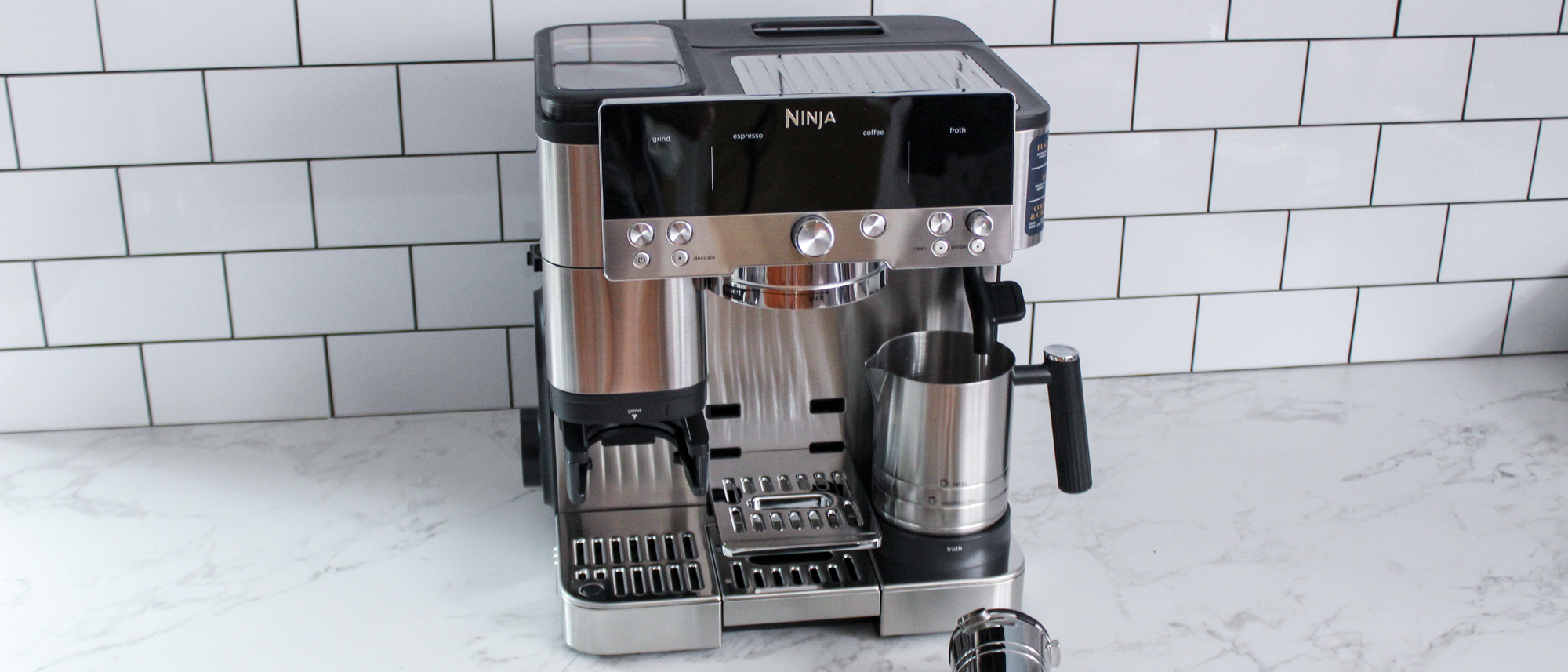Tom's Guide Verdict
If you’re hoping to save some money by making fancy coffee at home, the Ninja Luxe Café Premier Series Espresso Machine is worth the investment. It’s able to make a variety of drinks, from lattes and cappuccinos to cold brew and regular drip coffee, and the machine’s sleek yet thoughtful design is easy to use, especially for beginners.
Pros
- +
Intuitive and beginner friendly
- +
Makes a wide range of hot and iced drinks
- +
Automatic milk frother
- +
Sleek, stylish design
- +
Integrated storage for accessories
Cons
- -
Switching beans is complicated
- -
No option for a single shot
Why you can trust Tom's Guide
Dimensions: 12.99 in L x 13.39 in W x 14.57 in H
Power cord: 40 inches
Weight: 25.7 pounds
Water tank: 70 ounces
Power: 1,650 watts
Grinder settings: 25
Warranty: 1 year
Espresso-based drinks are delicious, but even the best espresso machines can be intimidating for beginners. Not only are high-end coffee makers quite pricey, but they often rely on trial and error to get your espresso shots just right. If you want something that’s easier to use, the new Ninja Luxe Café Premier Series Espresso Machine was created with beginners in mind.
Ninja is known for its thoughtfully designed kitchen appliances, and the brand’s first-ever espresso machine is no exception. The Luxe Café Premier is designed to take the guesswork out of making espresso and espresso-based drinks, and its “Barista Assist Technology” offers grind size recommendations, automated brew adjustments, and more. It’s also more versatile than other espresso machines, brewing all sorts of hot and cold beverages, including coffee, cold brew, and even hot chocolate.
I’ve tested out my fair share of the best coffee makers on the market, and I wanted to see how the Luxe Café Premier stacks up against some of the more popular options out there. After a few weeks of testing, I’m thoroughly impressed with its design and performance, and I think it’s the best espresso machine for beginners that you can buy today.
Ninja Luxe Café review: Price and availability
The Ninja Luxe Café Premier Series Espresso Machine is the brand’s first-ever espresso machine, and it currently retails for $499.99, which is quite reasonable considering its wide range of features. The machine is available at most major online retailers, including Amazon, Target, and Best Buy.
The Ninja Luxe Café recently launched in the UK, too. It's available at Curry's and Ninja at £549, although it's currently sold out at both retailers.
Ninja Luxe Café review: Design
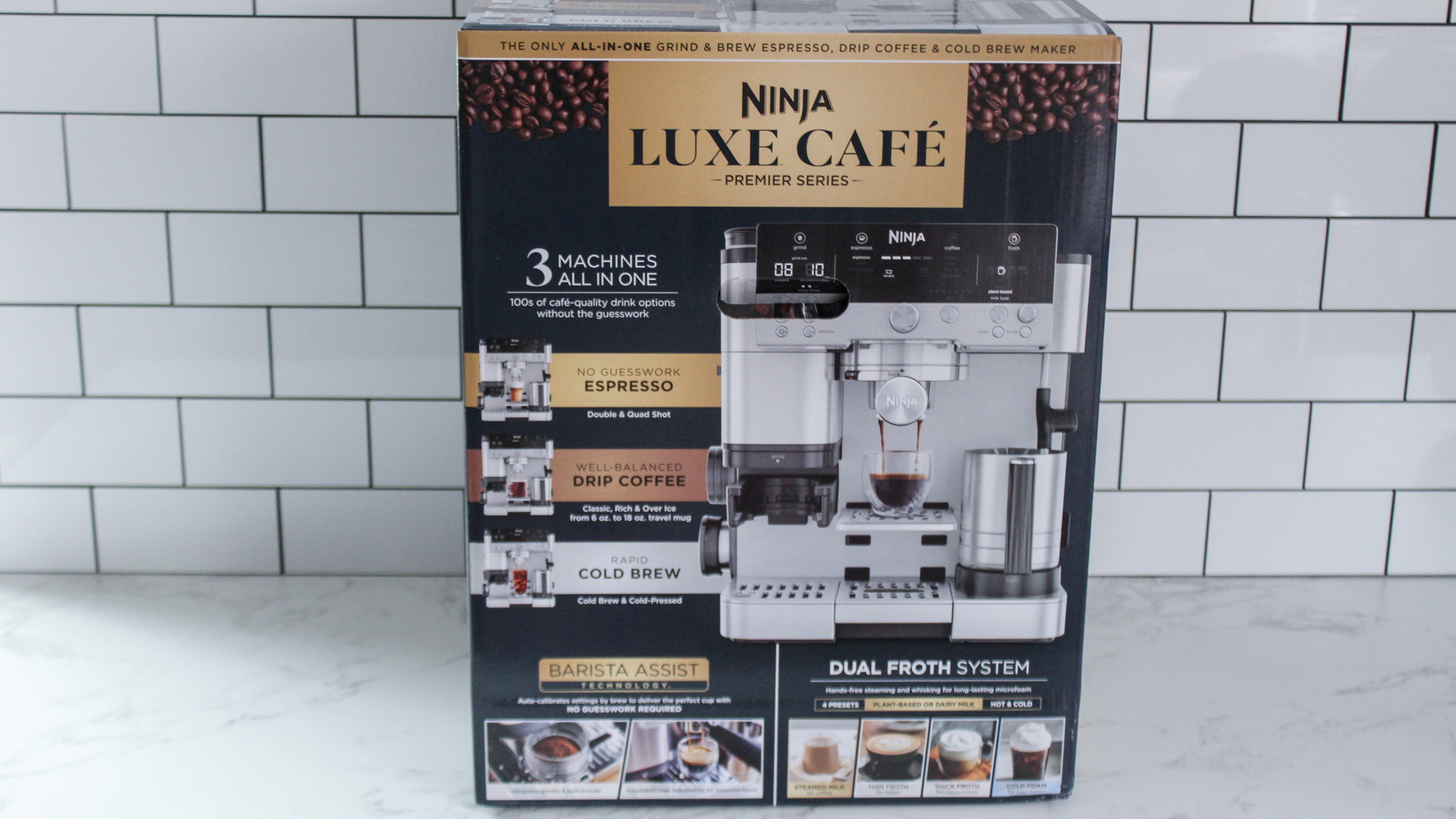
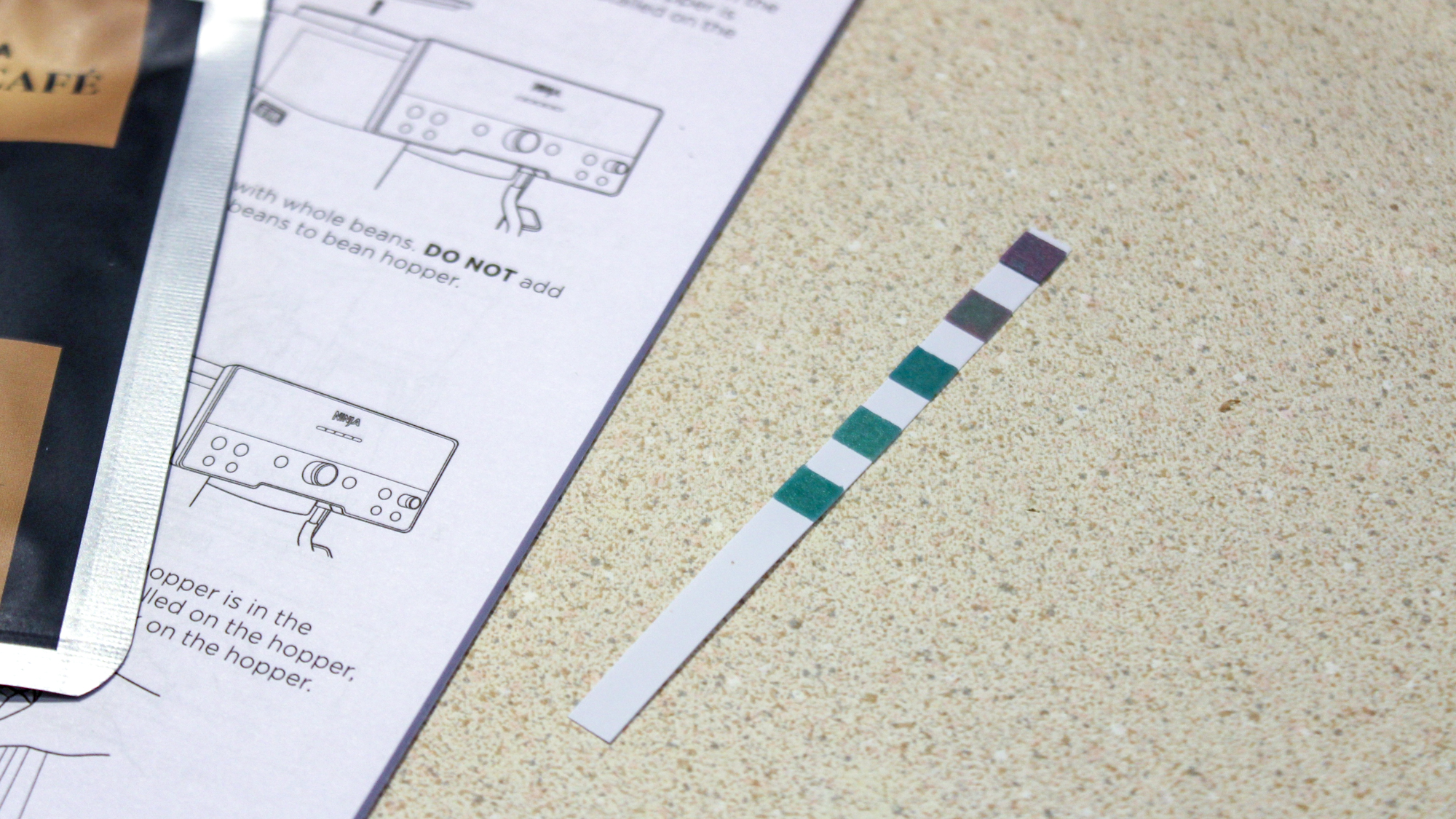
The Ninja Luxe Café Premier is the size of an average mid-size espresso machine, and it has an attractive stainless steel exterior with black accents and a large digital screen across the top. Unlike other espresso machines like the Breville Barista Express, the Ninja doesn’t have any pressure dials or other confusing settings. Instead, it automatically programs most settings itself using the Barista Assist Technology.
One of my favorite aspects of this machine’s design is that there’s integrated storage for all its accessories. On the right side of the unit, there’s a swing-out compartment where you can stash the filter basket and cleaning tools, and on the left side, there are spots to store the tamp and funnel when they’re not being used. This makes it easy to keep all the accessories neat and organized.
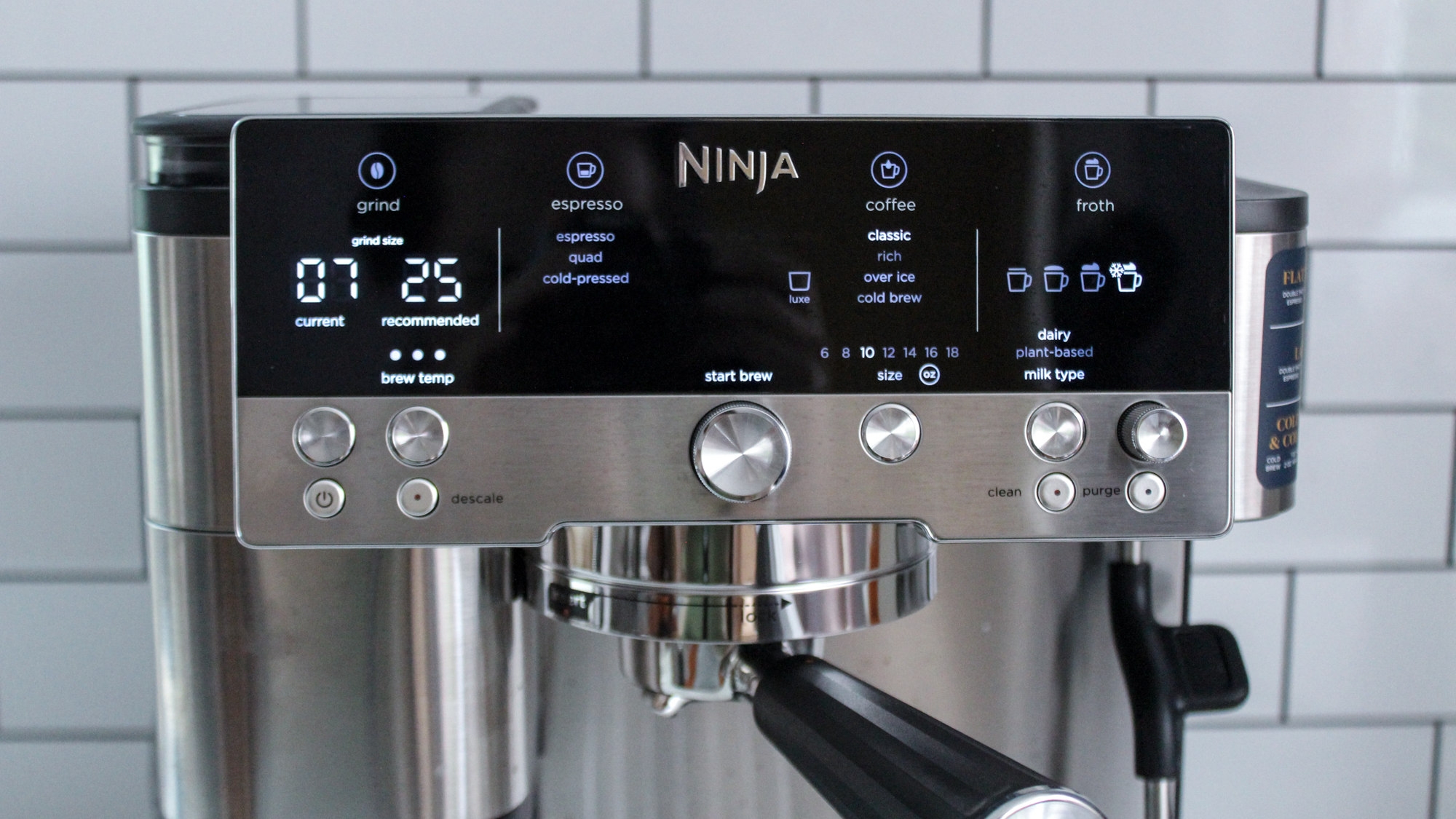
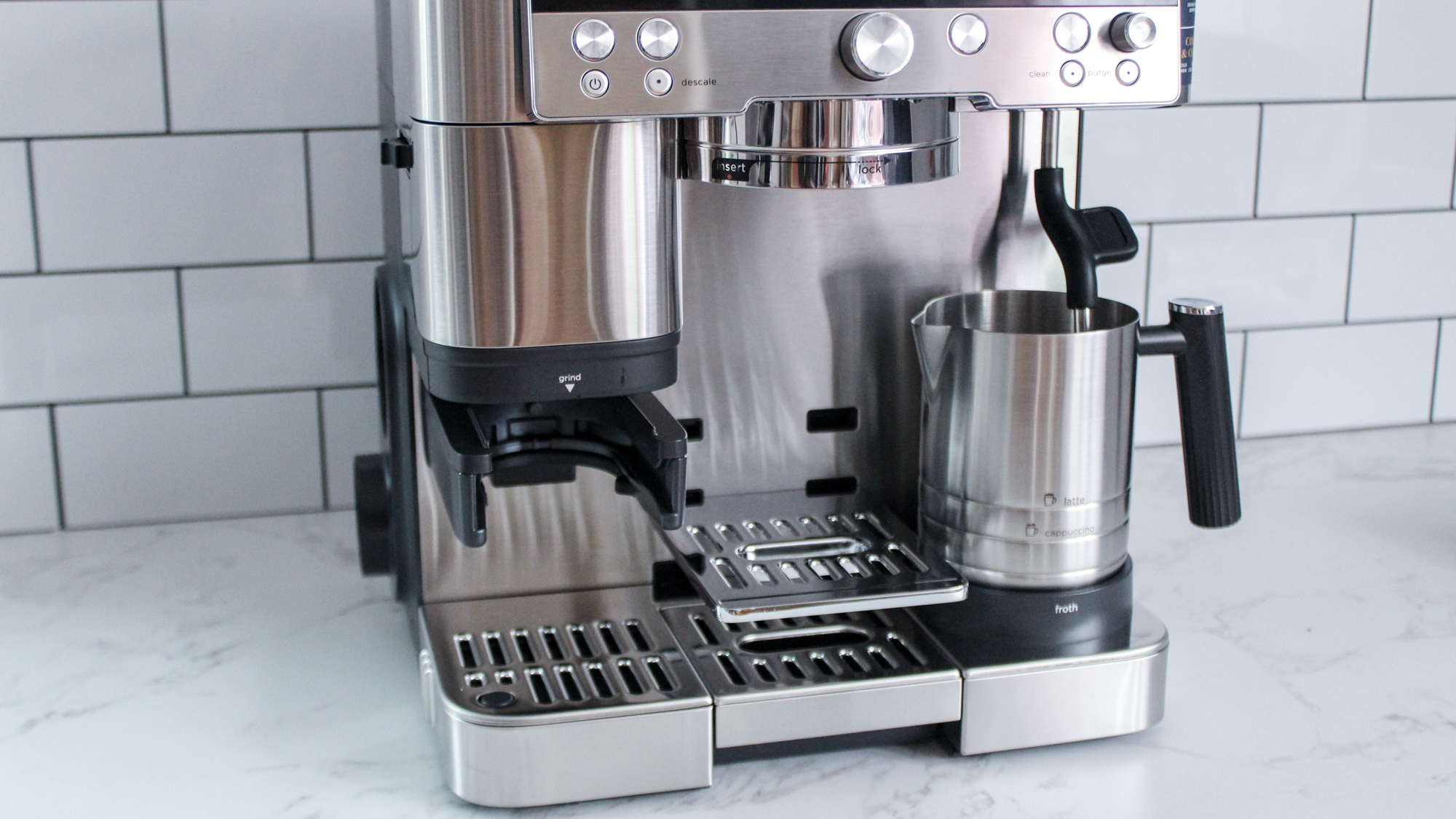
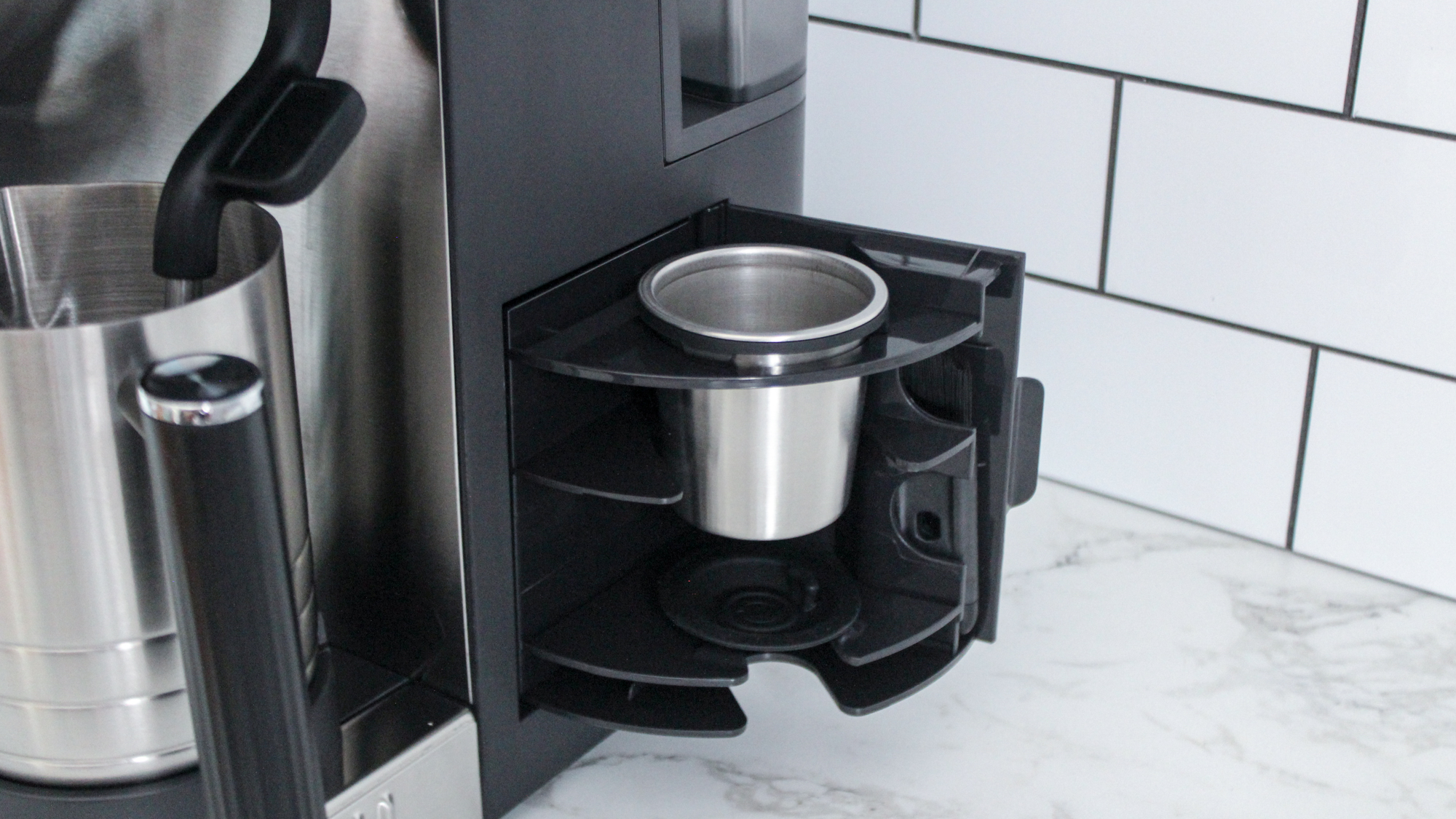
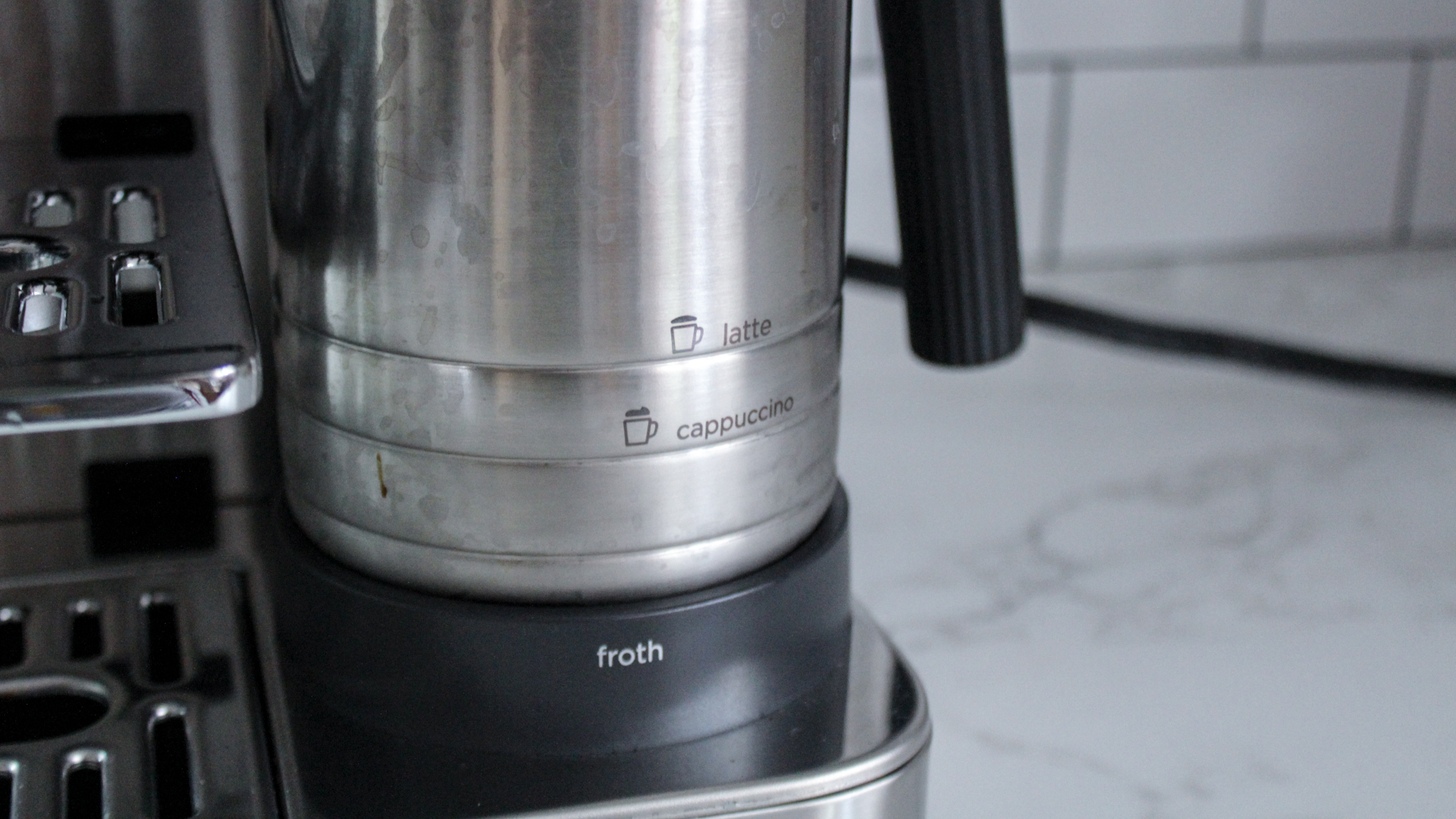
The water tank is on the back of the machine and can hold 70 ounces at a time. I found that it needed to be refilled a couple of times a week with daily use. The bean hopper, which is on the top of the espresso maker, holds about half a bag of coffee beans, and the lid has a thick rubber edge that creates an airtight seal, helping to keep the beans fresh. There’s also a locking handle inside the hopper that lets you remove the whole thing if you want to pour out the beans and replace them with new ones.
Ninja Luxe Café review: Performance
The Ninja Luxe Café Premier Series Espresso Machine has a wide range of settings and can make everything from a plain espresso shot to cold brew with cold foam. I tested out the machine for several weeks, and I found it very intuitive to use, rarely needing to consult with the manual.
Before you set up the machine, you do have to run a test to figure out the hardness of your tap water. The brand provides a test strip and thorough instructions, and you input the results into the espresso maker so it can adjust its brew settings accordingly. Once this was done, all I had to do was fill up the water tank and bean hopper, and I was ready to start brewing.
Espresso
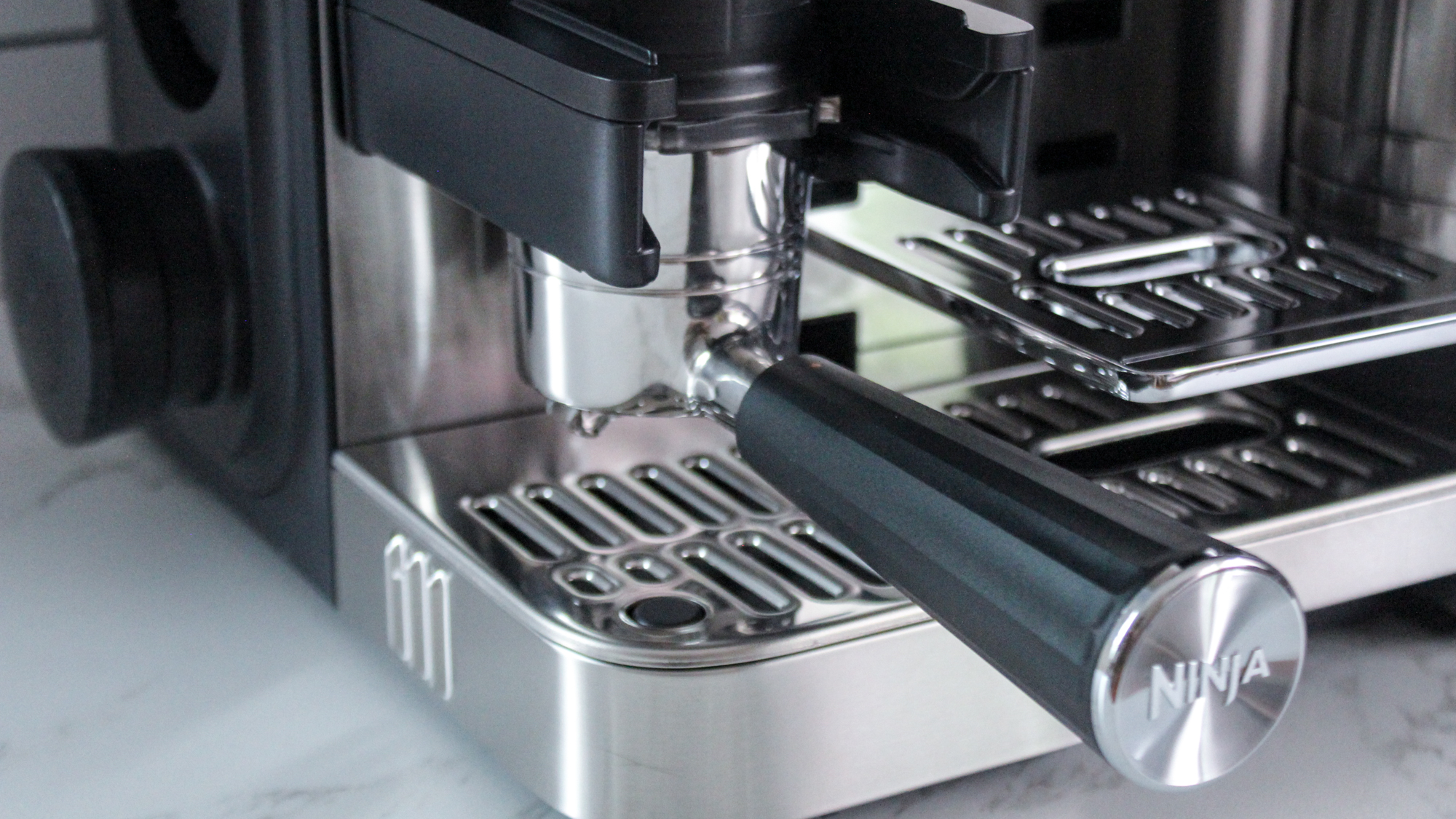
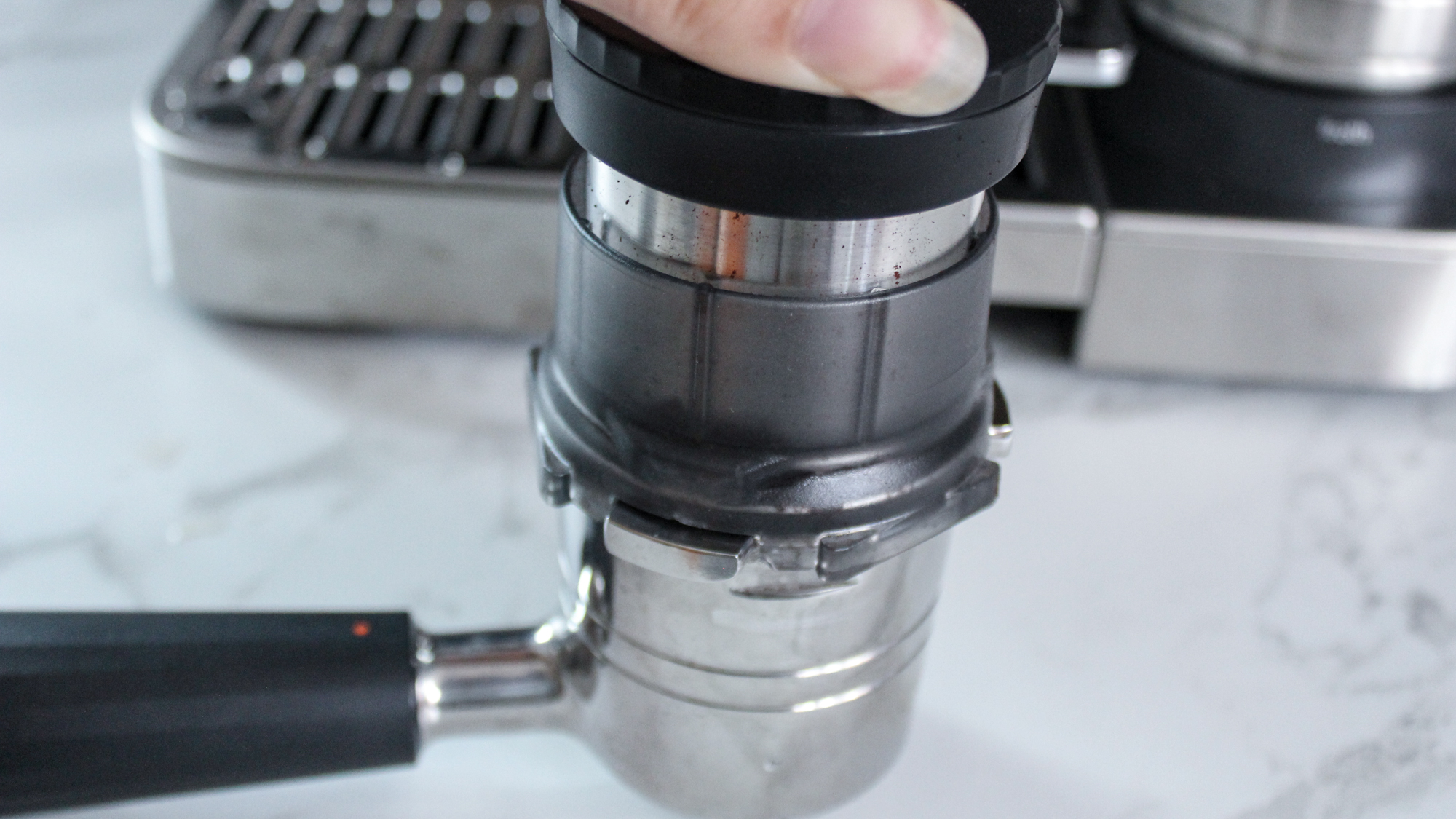
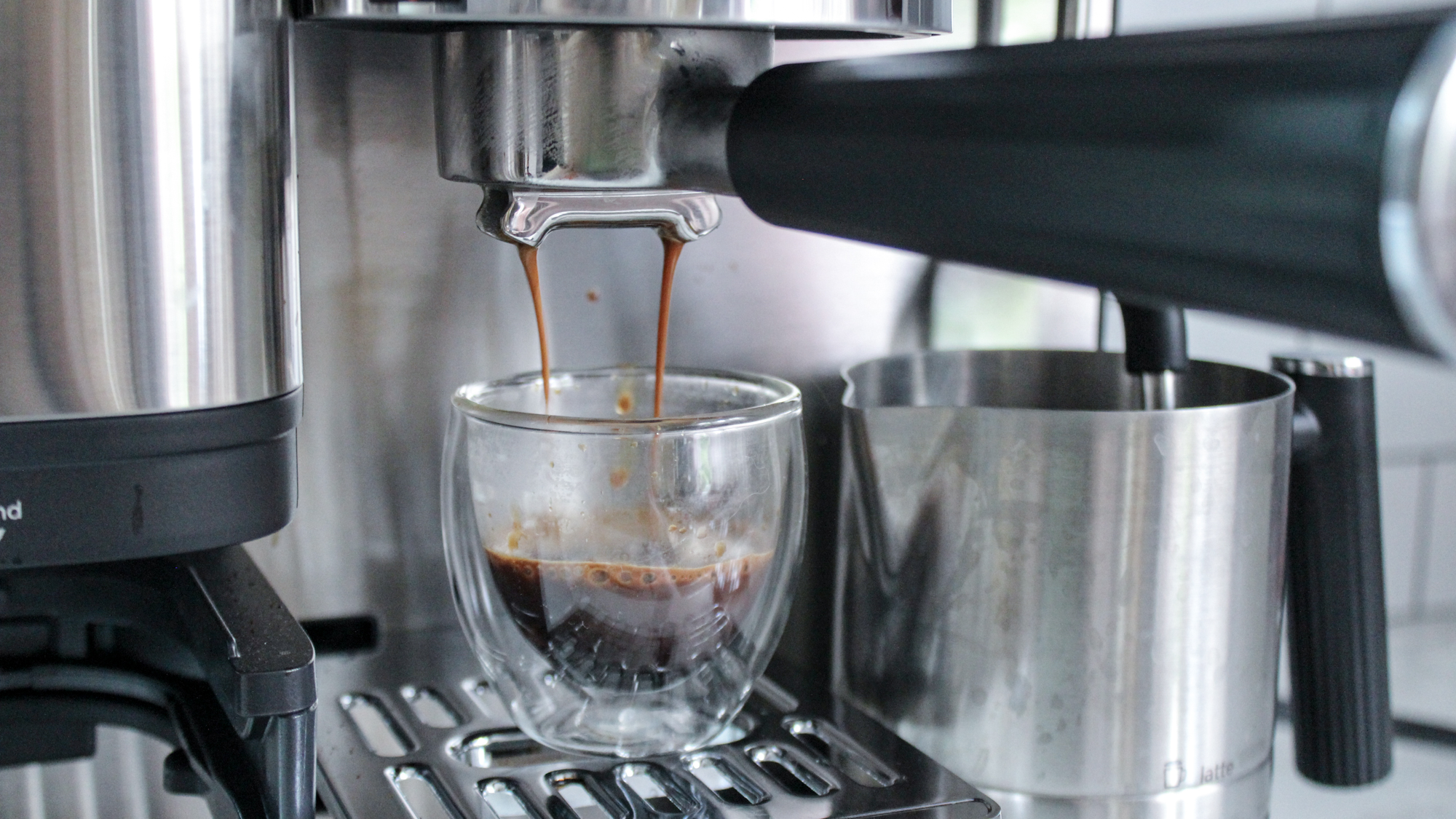
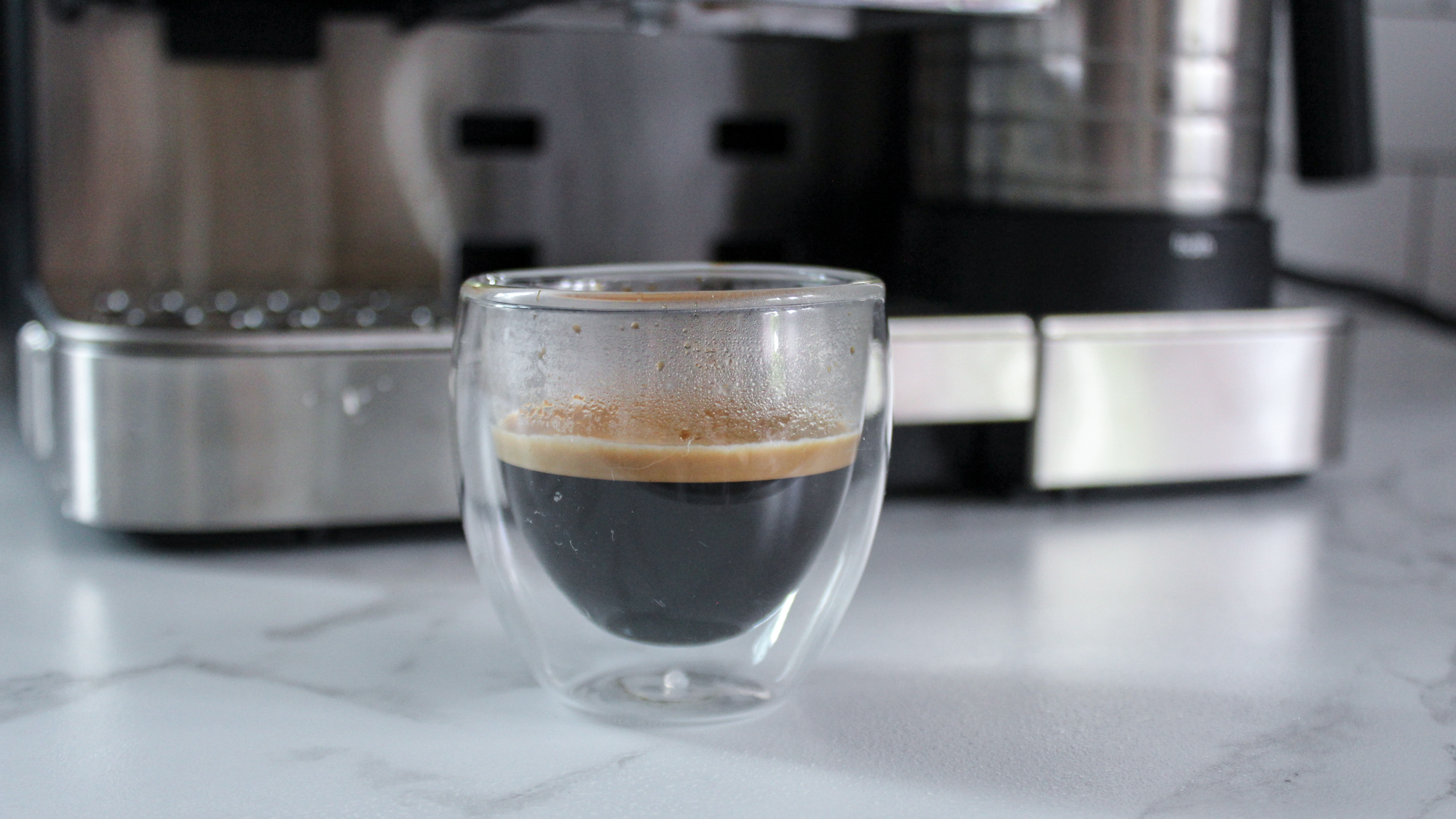
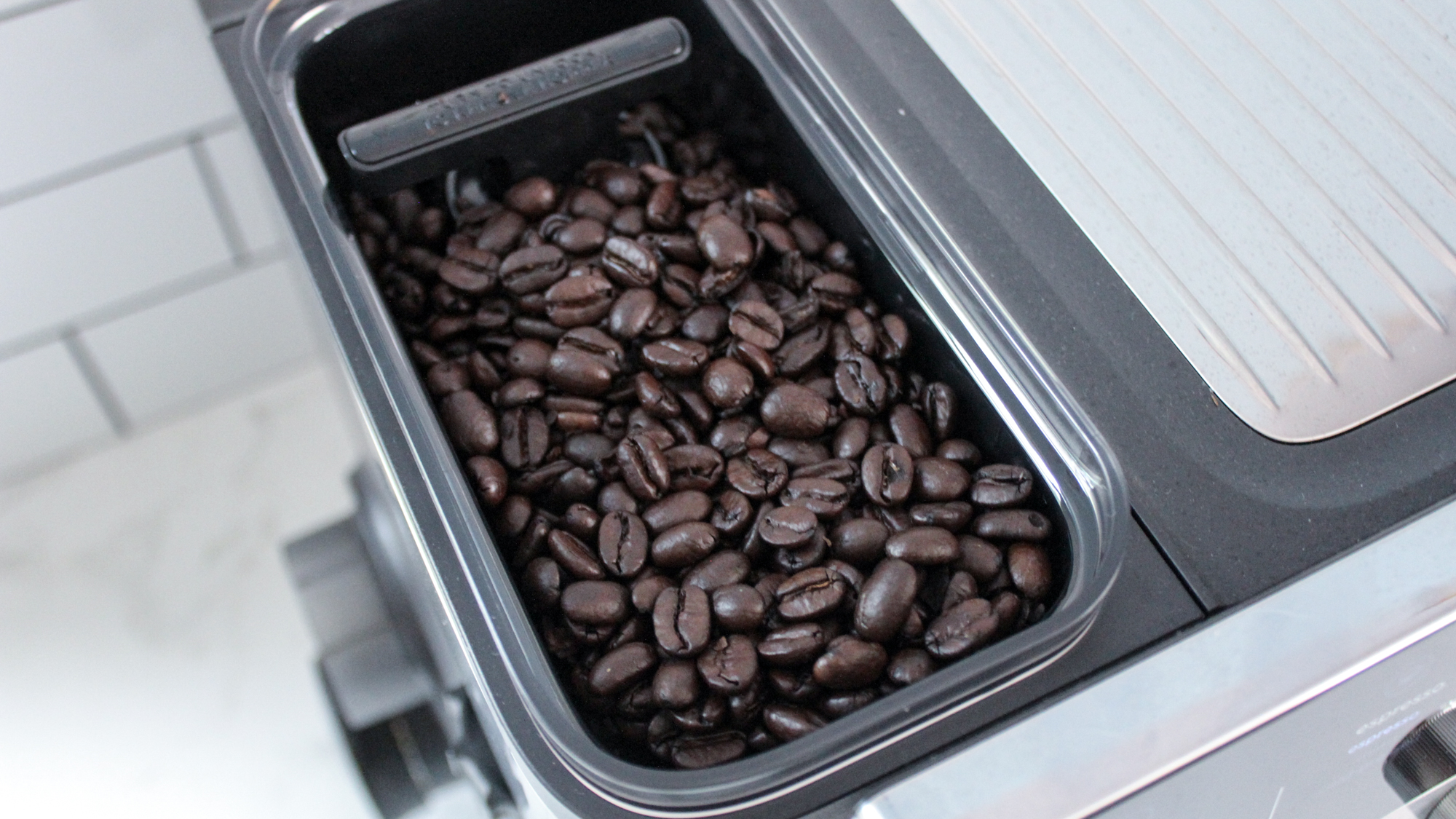
It’s quick and easy to make espresso with the Ninja Luxe Café Premier Series, as it guides you through the process step-by-step. First, you choose between the two filter baskets, which allow you to make double or quad shots. (This machine doesn’t come with a single shot option, but most lattes and other espresso drinks require double shots anyway.) At this point, you also select what type of espresso you want to make from the machine’s menu.
Once you install the basket into the portafilter, you place the funnel on top and slide it into place under the grinder. The machine automatically weighs the basket and tells you what setting to put the grinder on, which is adjusted by a dial on the side of the machine. The grinder has a total of 25 settings, and it will guide you to select a finer setting for espresso or a more coarse grind for coffee.
When you press “Start Grind,” it will dispense the beans into the basket—the grinding process only takes around 20 seconds, and it’s quieter than other espresso grinders I’ve used in the past, including the Philips Barista Brew. When it’s finished, you pull the portafilter back out and use the included tamp, which is stored on the side of the machine, to press down the grinds. (You only have to do this if you’re making espresso—coffee grinds don’t need to be tamped.) The tamp is designed to be used with the portafilter funnel still attached, and it’s easy to use, delivering a nice, flat puck with minimal effort.
From here, you insert the portafilter into the machine and press start. It takes around a minute for the machine to brew a double shot, and I like that you can adjust the height of your cup to minimize splashing. The espresso always has a nice layer of crema on top, and it was rich and flavorful every time—you could definitely drink it straight.
Milk steaming
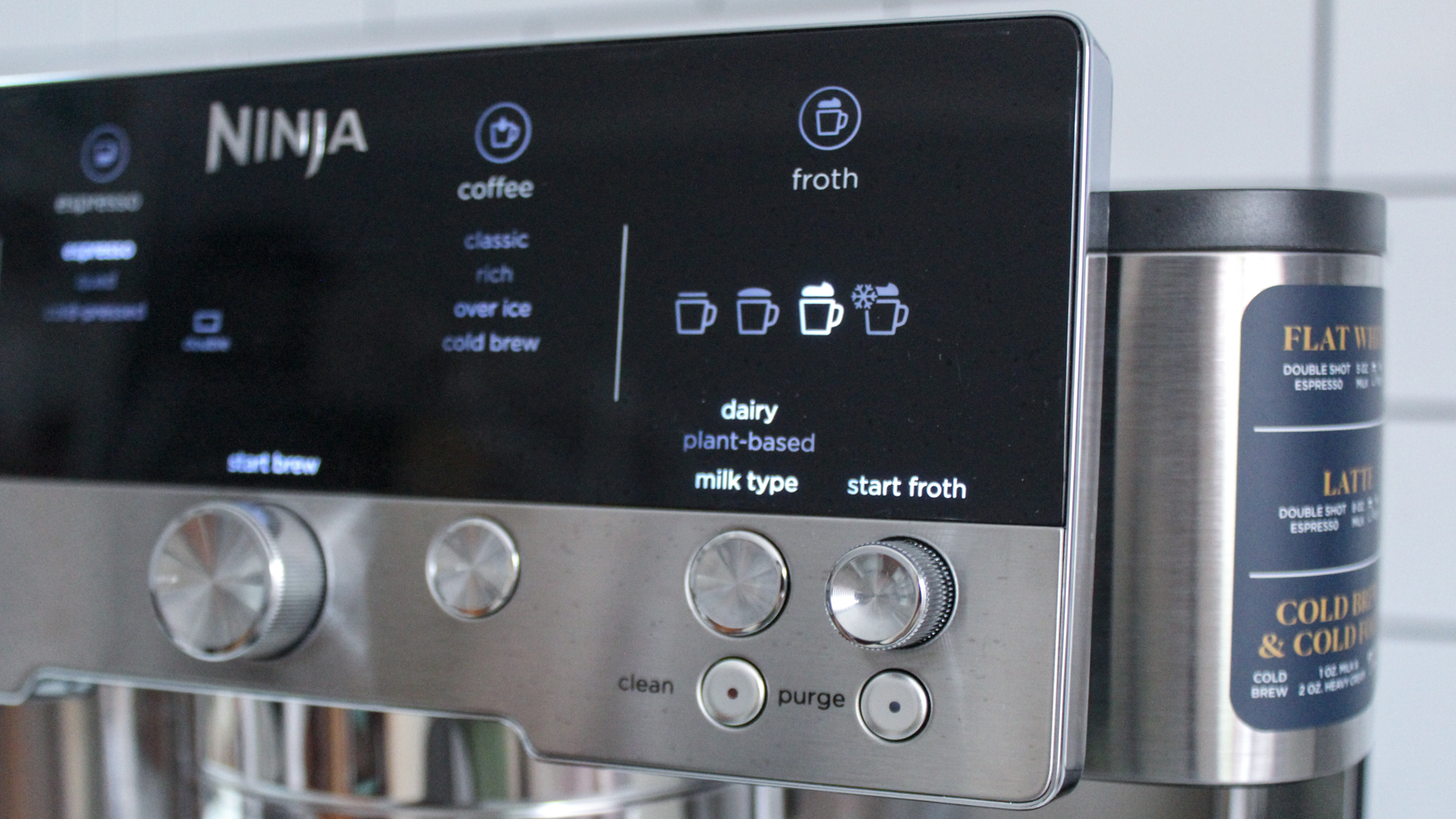
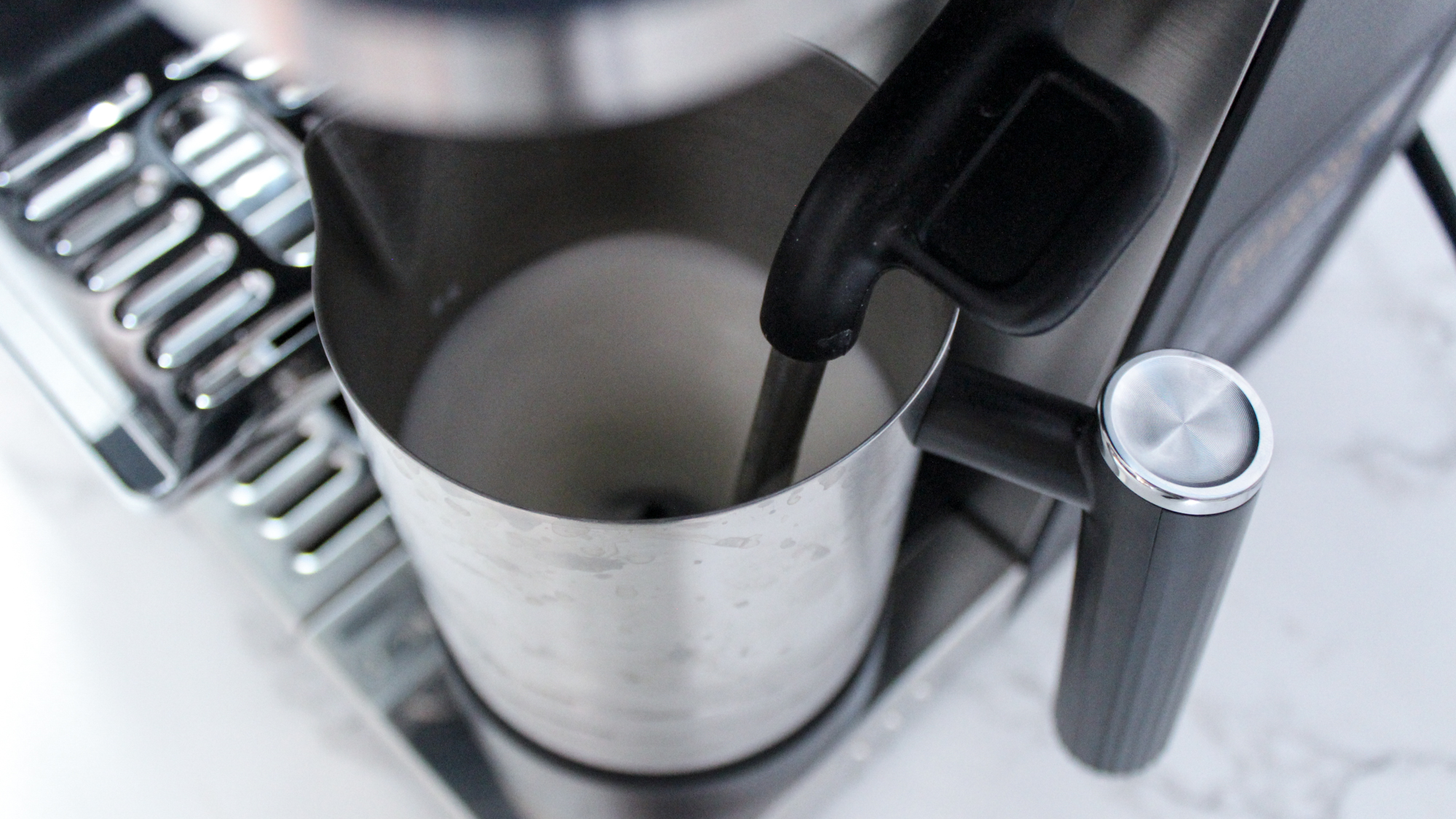
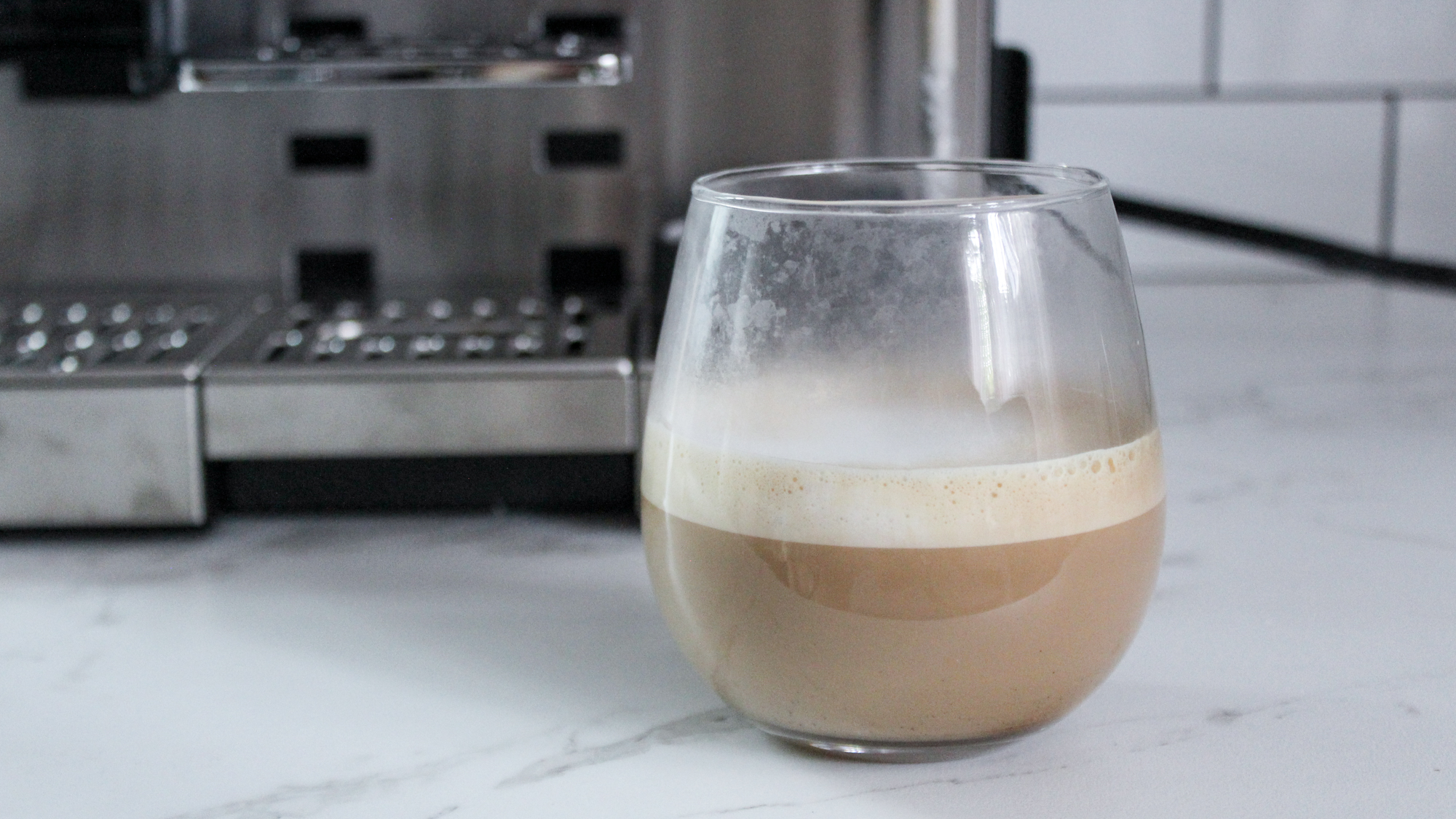
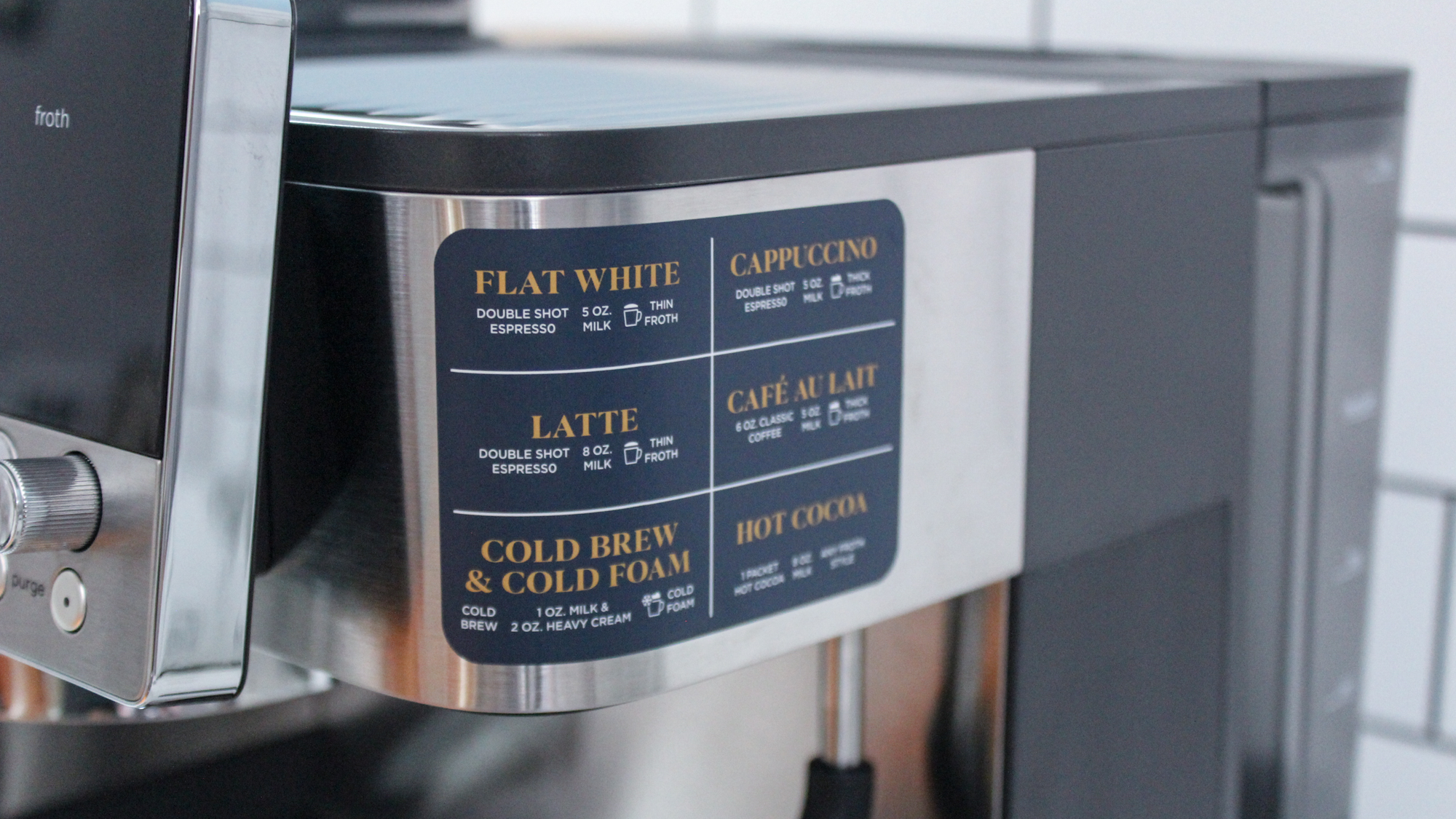
Most espresso machines have built-in milk steamers that heat up dairy and plant-based milk for drinks like lattes and cappuccinos, but they can be tricky to use. I recently tested the Philips Barista Brew Coffee Maker, and it took me weeks to master the machine’s milk wand.
Because this can be another tricky aspect of the espresso-making process, Ninja created a unique frothing system that’s truly foolproof to use. The stainless steel milk jug has measurement lines on the inside that lets you quickly pour 2, 5 or 8 ounces of milk, and all you do is place the jug on the magnetic dock with the frothing wand inside—no need to hold it at an angle or experiment with wand depth.
On the menu, you can select between regular or plant-based dairy, as well as four different foam types/amounts. When you hit start, the machine quickly begins frothing your milk, and there’s a tiny whisk in the bottom of the milk jug that helps create super thick, fine foam for your drink. It’s quiet while frothing—unlike other machines that make loud screeching noises if you don't use them perfectly—and the milk came out exactly as I wanted every time I used the wand. Plus, after you remove the milk jug, the wand automatically purges itself to prevent clogs—a handy feature for anyone who, like myself, sometimes forgets to clean their espresso machine after use.
Iced Drinks
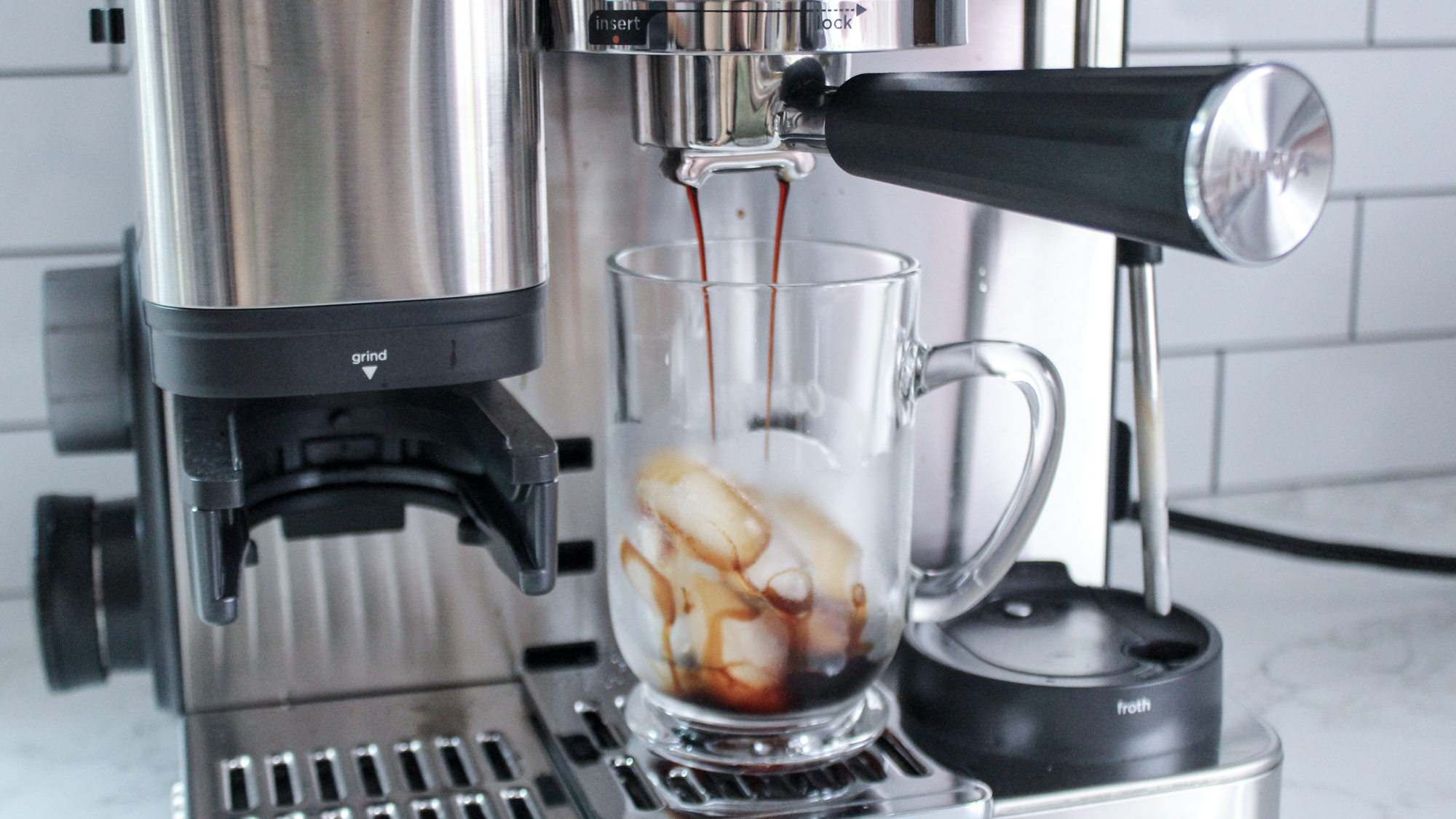
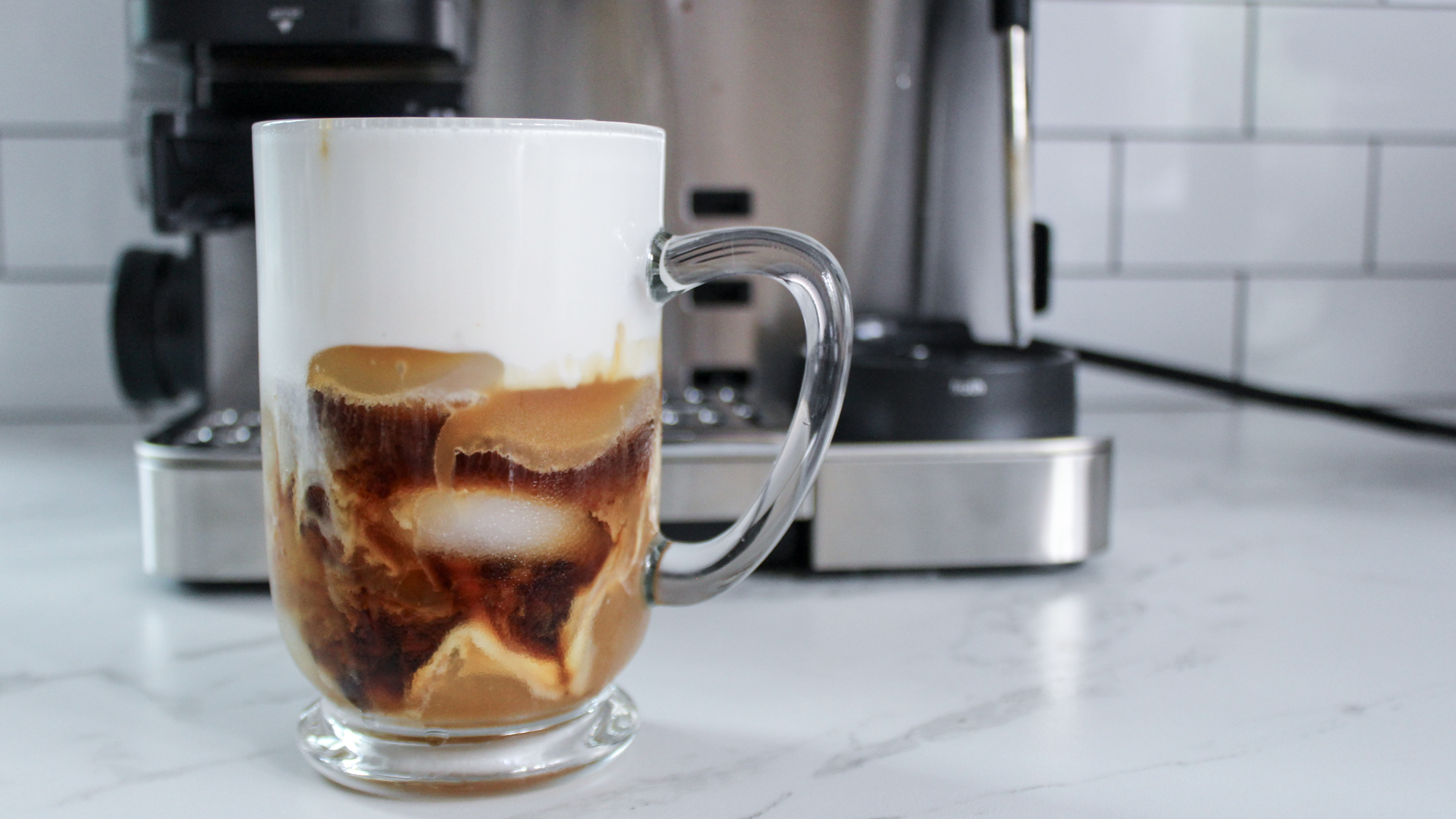
Like most people, I switch to iced coffee drinks during the summer, so I was ecstatic to discover that the Luxe Café Premier has special settings for making cold drinks. This is becoming a trend in espresso machines, with everyone from De'Longhi to Breville releasing smart machines that can make "cold brew" in minutes. The process is the same as making a hot drink, but instead of selecting the regular espresso option, you switch it to “cold press” espresso and brew directly over ice. It takes a bit longer than regular espresso and lacks the thick layer of crema, but the flavor is still rich and delicious.
Unlike both the Breville Oracle Jet and the De'Longhi La Specialista Maestro though, this machine has a special cold foam setting, too. It creates a super thick layer of foam that you can spoon onto any drink, and it doesn’t heat up the milk at all. (You can also mix in syrup to make flavored cold foam.) I quickly discovered that I could make an amazing caramel macchiato using these features, and I think it’s actually better than the ones I get at the coffee shop.
Coffee
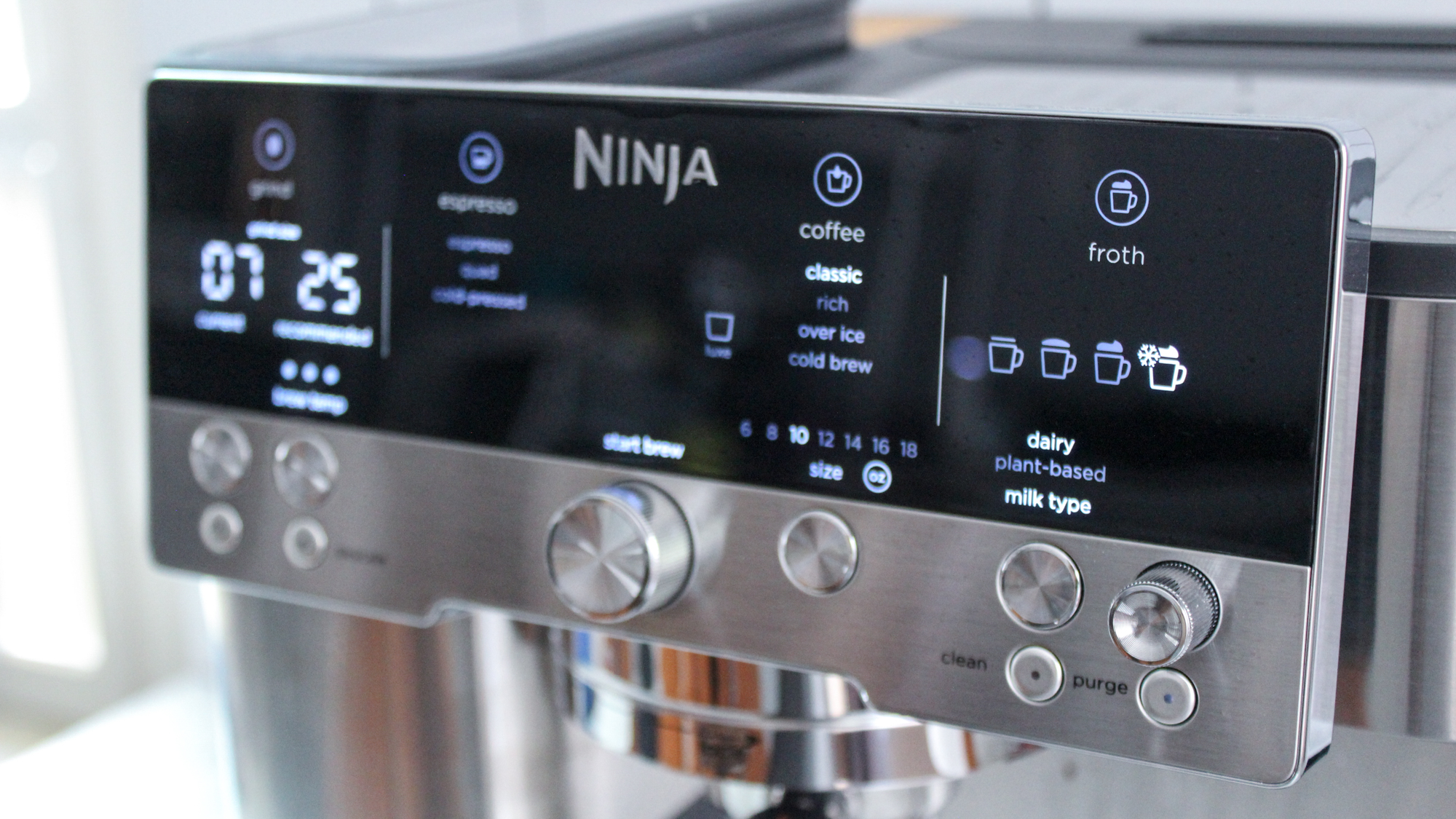
The Luxe Café Premier also has multiple settings for regular coffee. The process for making coffee is a little different—the machine uses a coarse grind setting, and you don’t tamp down the grinds. You can choose from classic, rich, over ice, or cold brew options, and there are seven drink sizes to choose from, ranging from six to 18 ounces.
When I tested out this feature, I opted for a classic brew, and while it was easy and straightforward to make, the coffee was really strong, as I made it using the espresso-roasted beans that I had been using for lattes. Personally, if I was going to use the machine to make coffee, I would want a lighter roast, and the process for switching out the beans is a bit complicated. You have to empty the hopper then run the grinder a few times to clear out any of the old beans. Then, the machine has to recalibrate to the new beans.
All that to say: it’s not easy to switch back and forth between types of beans for espresso vs. regular coffee, so if you want to make both, your best option is to find beans that work for both types of drinks.
How does it compare?
Almost every large appliance brand makes some type of semi-automatic espresso machine, so there’s no shortage of options to choose from. The Philips Barista Brew Coffee Maker is another newer model that’s a similar size and price, but it gives you more control over the brewing process, which is beneficial for more experienced espresso makers. However, I found that this machine takes a lot of practice to master, so I'd recommend it for users who know a thing or two about making espresso at home.
Another option that’s great for beginners is the Philips 3200 LatteGo, which is a fully automatic espresso machine. You don’t have to lift a finger to make a latte or cappuccino with this machine, and it can also make regular coffee. However, it can’t make iced drinks, and it’s more expensive, costing around $700.
Ninja Luxe Café review: Verdict
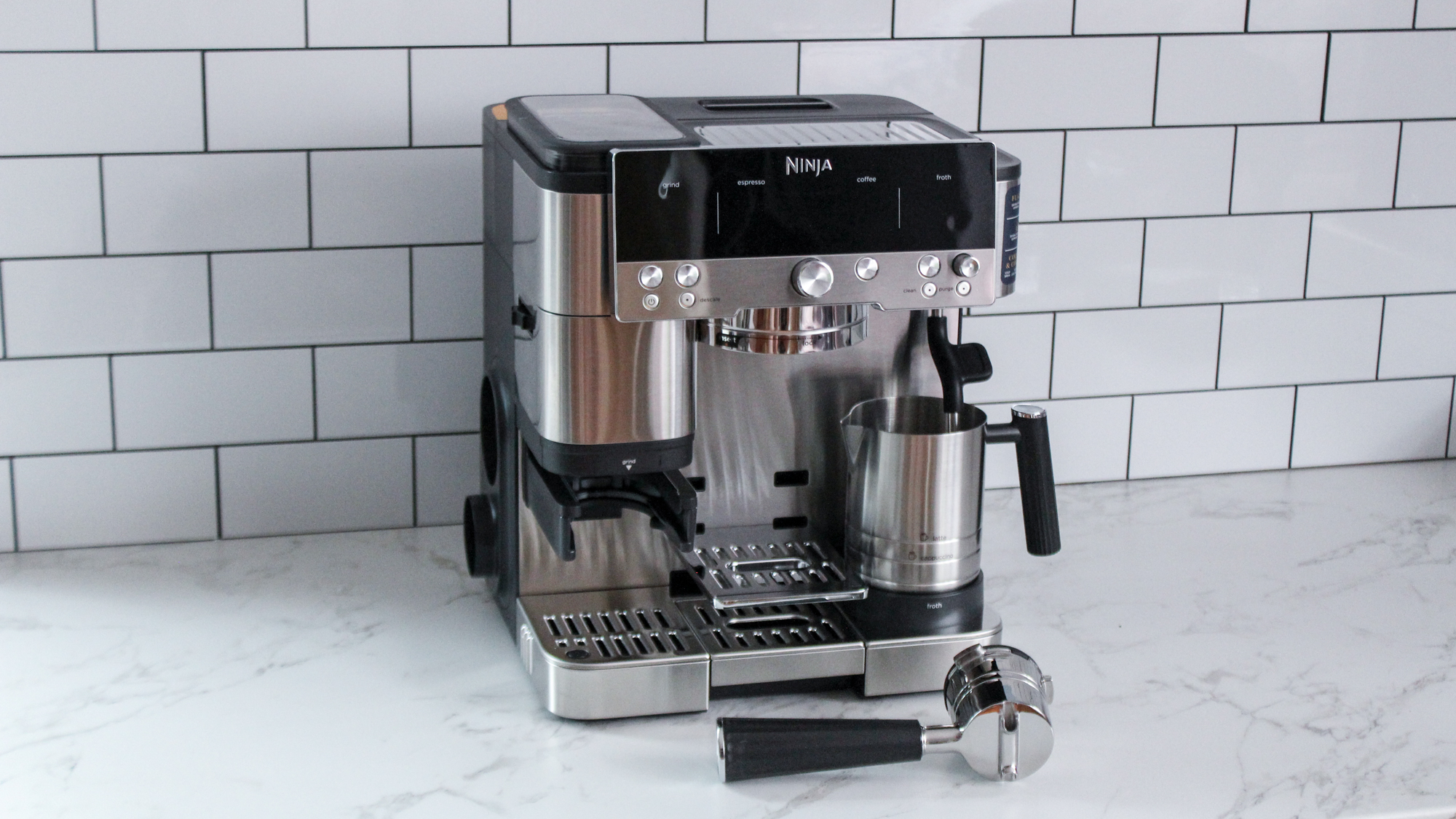
If you’re looking for a beginner-friendly espresso machine that’s stylish, versatile, and reasonably priced, I think the Ninja Luxe Café Premier Series Espresso Machine is one of the best options out there.
I’ve tested many espresso machines in my career, and the new model from Ninja is one of the best in terms of ease of use, overall design, and value. It can make everything from classic espresso shots to fancy cold brew drinks, and every beverage I made with it came out near-perfect. With this machine, I was able to recreate my favorite coffee shop drinks at home, and in several instances, my homemade creations were actually better than the original! And if you want a fancy homemade coffee on the go, Ninja has recently released its Perfect Sip travel mug.
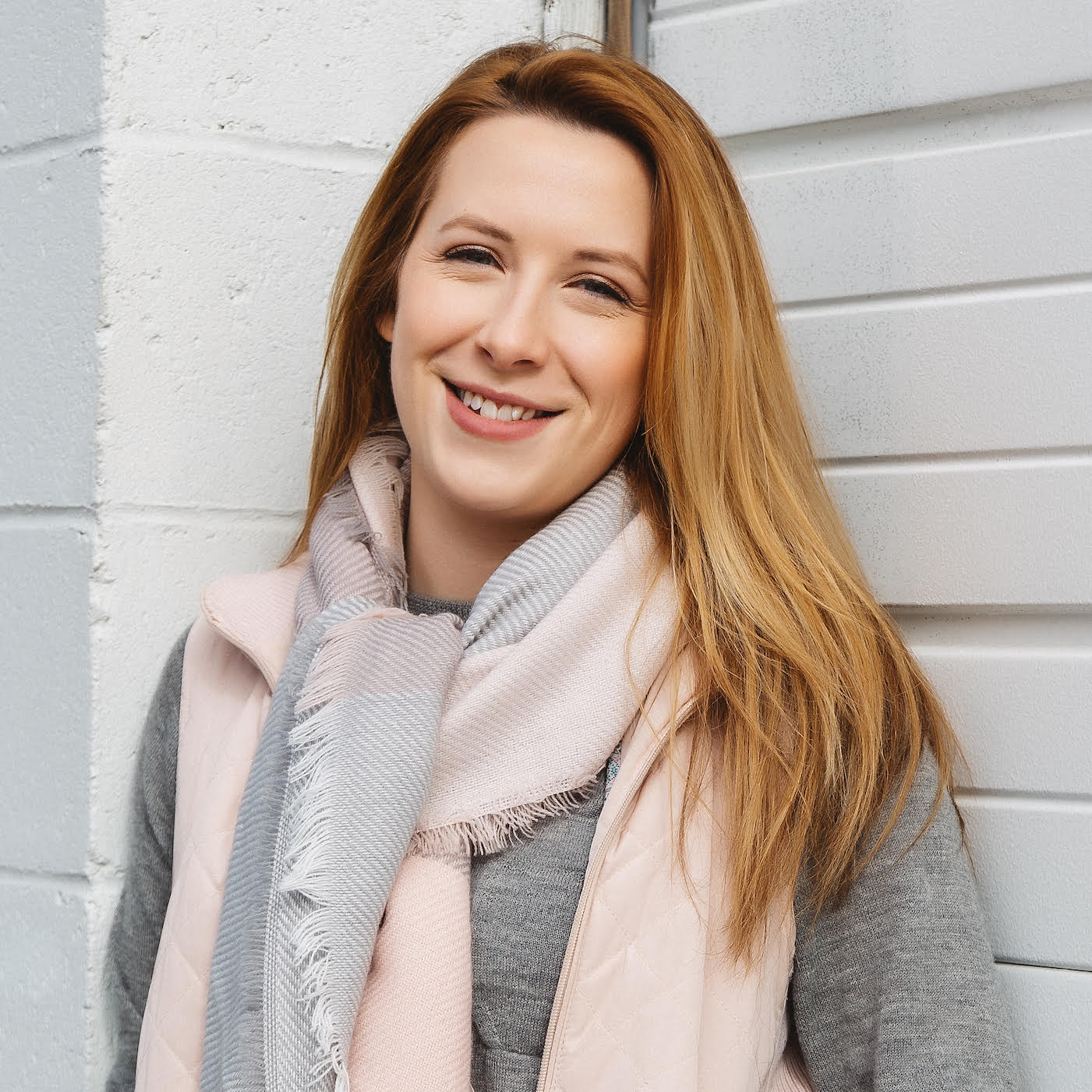
Camryn Rabideau is a freelance writer and product reviewer specializing in home, kitchen, and pet products. In her five years as a product tester, she's tested hundreds of items first hand, and her work appears in publications such as Forbes, USA Today, The Spruce, Food52, and more.
